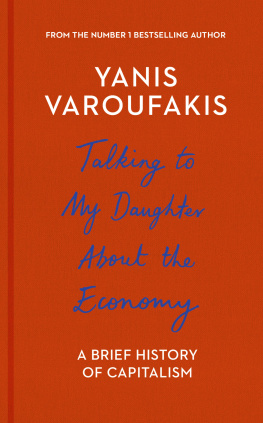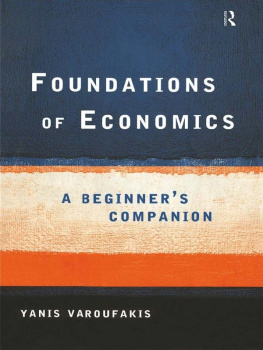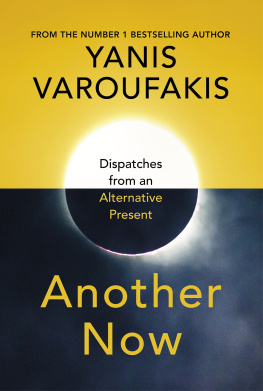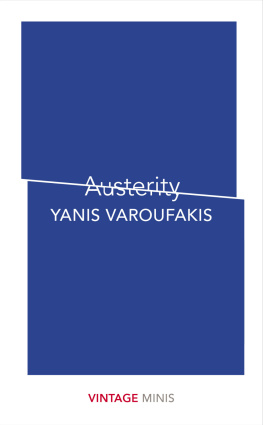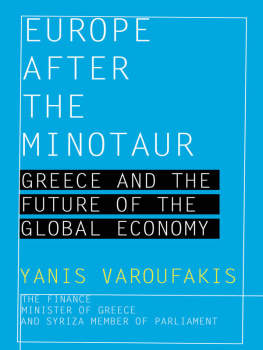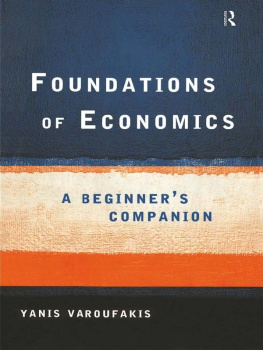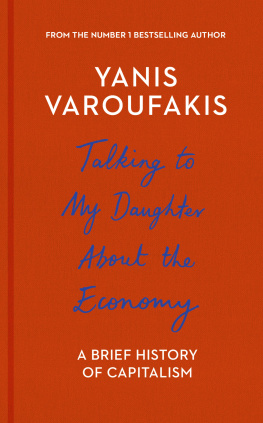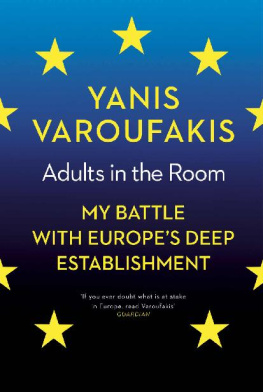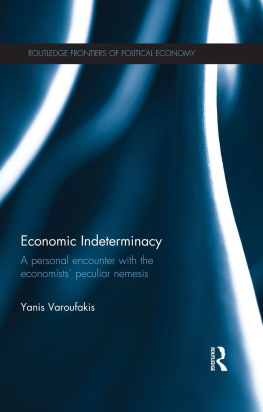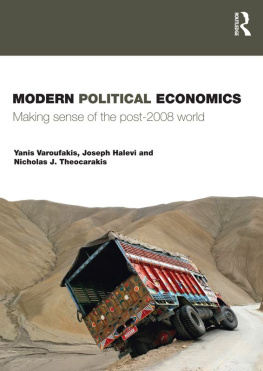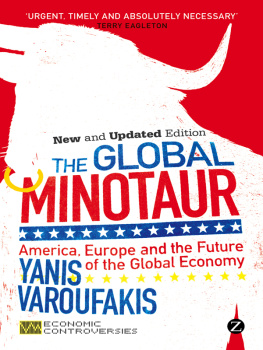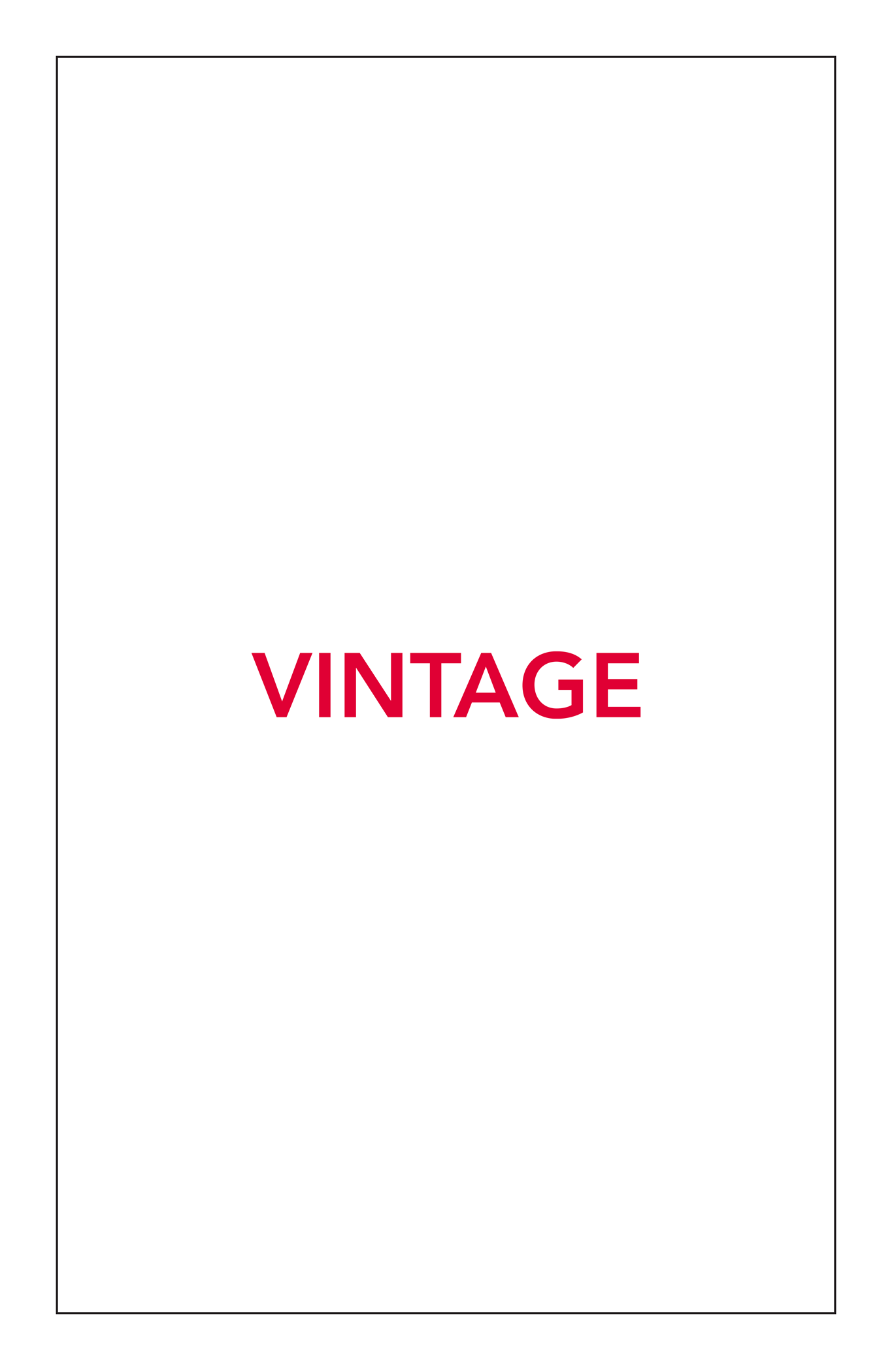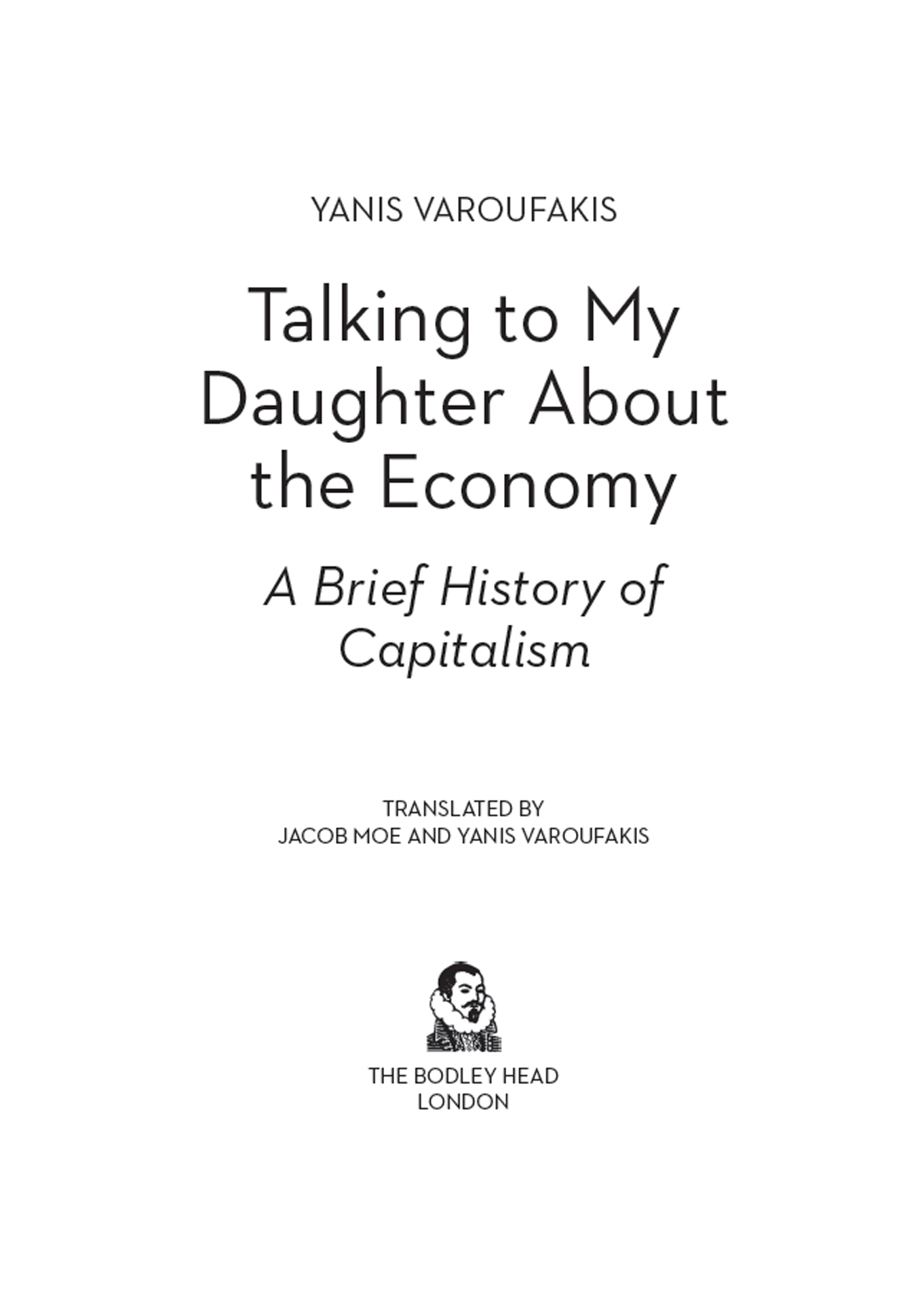Contents
About the Book
Why is there so much inequality?
In this short book, world-famous economist Yanis Varoufakis sets out to answer his daughter Xenias deceptively simple question.
Using personal stories and famous myths from Oedipus and Faust to Frankenstein and The Matrix he explains what the economy is and why it has the power to shape our lives.
Intimate yet universally accessible, Talking to My Daughter About the Economy introduces readers to the most important drama of our times, helping to make sense of a troubling world while inspiring us to make it a better one.
About the Author
Born in Athens in 1961, Yanis Varoufakis was for many years a professor of economics in Britain, Australia and the USA before becoming finance minister of Greece in 2015.
His memoir of his experiences in government, Adults In the Room: My Battle with Europes Deep Establishment, was a number one bestseller in 2017. His previous book, And The Weak Suffer What They Must?: Europe, Austerity and the Threat to Global Stability was a number one bestseller in 2016.
He is currently Professor of Economics at the University of Athens and speaks to audiences of thousands worldwide as a co-founder of the Democracy in Europe Movement (DiEM25).
His daughter Xenia is now fifteen years old and lives in Sydney, Australia.
yanisvaroufakis.eu / @yanisvaroufakis
ALSO BY YANIS VAROUFAKIS
Adults in the Room: My Battle with Europes Deep Establishment
And The Weak Suffer What They Must?: Europe, Austerity and the Threat to Global Stability
The Global Minotaur: America, Europe and the Future of the Global Economy
Prologue
This book grew out of my Greek publishers invitation, back in 2013, to talk directly to young people about the economy. My reason for writing it was the conviction that the economy is too important to leave to the economists.
If we want to build a bridge, better to leave it to the experts, to the engineers. If we need surgery, better to find a surgeon to operate. But books that popularize science are important in a world where the president of the United States wages open war against it and our children eschew science courses. Cultivating a broad public appreciation of science throws a protective shield around the scientific community that must produce the experts society needs. In this sense, the small volume here is quite different from those books.
As a teacher of economics, I have always believed that if you are not able to explain the economy in a language young people can understand, then, quite simply, you are clueless yourself. With time, I recognized something else, a delicious contradiction about my own profession that reinforced this belief: the more scientific our models of the economy become, the less relation they bear to the real, existing economy out there. This is precisely the opposite of what obtains in physics, engineering and the rest of the real sciences, where increasing scientific sophistication throws more and more light on how nature actually works.
This is why this book is my attempt to do the opposite of popularizing economics: if it succeeds, it should incite its readers to take the economy in their own hands and make them realize that to understand the economy they also have to understand why the self-appointed experts on the economy, the economists, are almost always wrong. Ensuring that everyone is allowed to talk authoritatively about the economy is a prerequisite for a good society and a precondition for an authentic democracy. The economys ups and downs determine our lives; its forces make a mockery of our democracies; its tentacles reach deep into our souls, where they shape our hopes and aspirations. If we defer to the experts on the economy, we effectively hand to them all decisions that matter.
There was another reason I agreed to write this book. My daughter Xenia is an almost constant absence in my life. Living as she does in Australia and I in Greece, we are either far apart or, when we are together, counting the days until the next separation. Talking as if to her about things that the scarcity of time never allowed us to discuss felt good.
Writing the book was a joy. It is the only text I have written without any footnotes, references or the paraphernalia of academic or political books. Unlike those serious books, I wrote it in my native tongue. In fact, I just sat down at our island home in Aegina, overlooking the Saronic Gulf and the mountains of the Peloponnese in the distance, and let the book write itself without a plan or provisional table of contents or blueprint to guide me. It took nine days, punctuated by the odd swim, boat ride or evening out with Danae, my forgiving and ridiculously supportive partner.
A year after the book was published in Greek, life changed. The collapse of the Greek and European economies pushed me through the rabbit hole of a ministerial position in the midst of an almighty clash between the people who elected me and a global oligarchy. Meanwhile, thanks to my new role, this little book was being translated into many languages, its musings acquiring a large audience in France, Germany, Spain and several other places. The only major language that it was not translated into was English.
Now, with the help of Jacob Moe, who translated from the original Greek, and the good people at Penguin Random House, Will Hammond in particular, it is appearing in the language in which I usually write. Following swiftly on the heels of another book, Adults in the Room, which was exceptionally painful to write, documenting as it did the traumatic events of 2015, reworking this book into its English incarnation has been therapeutic: an escape from the trials and tribulations of one caught up in the vortex of a collapsed and sinking economy. It has allowed me to return to a long-lost self who once wrote in peace and quiet, without the constant assaults of the press, doing what I have always loved: seeking ways to disagree with myself in order to discover what my true thoughts are.
The problem with our daily exchanges over the issues of the day is that we drift into a debate uninformed by the elephant in the room: capitalism. During the week in July 2017 that I worked on this English edition, again in Aegina, overlooking the same sea and the same mountains, I loved not writing about Brexit, Grexit, Trump, Greece, Europes economic crisis but instead talking to my daughter, in the abstract, about capitalism. For, in the end, nothing makes sense if we do not come to terms with this beast that dominates our lives.
In view of what Ive just written, readers may be surprised by the absence of any mention of capital or capitalism in the book. I chose to leave out such words not because there is anything wrong with them but because, loaded as they are with heavy baggage, they get in the way of illuminating the essence of things. So, instead of speaking about capitalism, I use the term market society. Instead of capital you will find more normal words like machinery and produced means of production. Why use jargon if we can avoid it?

